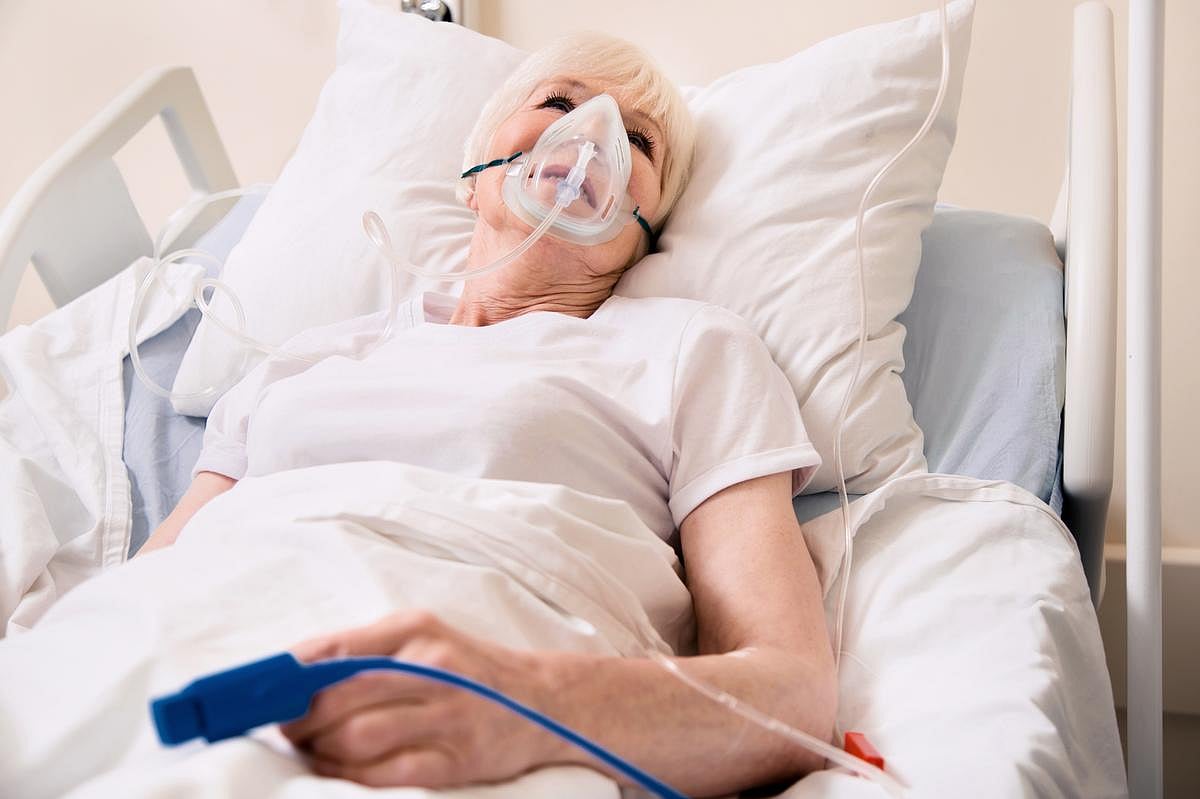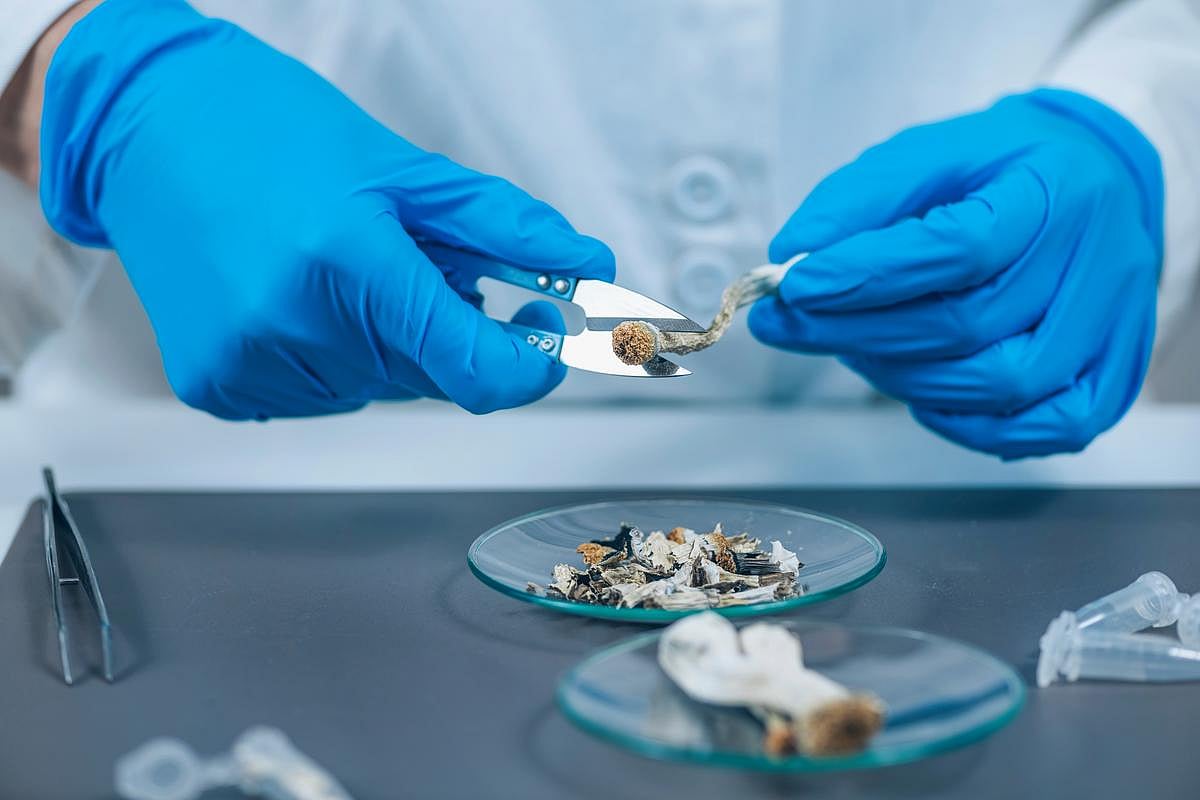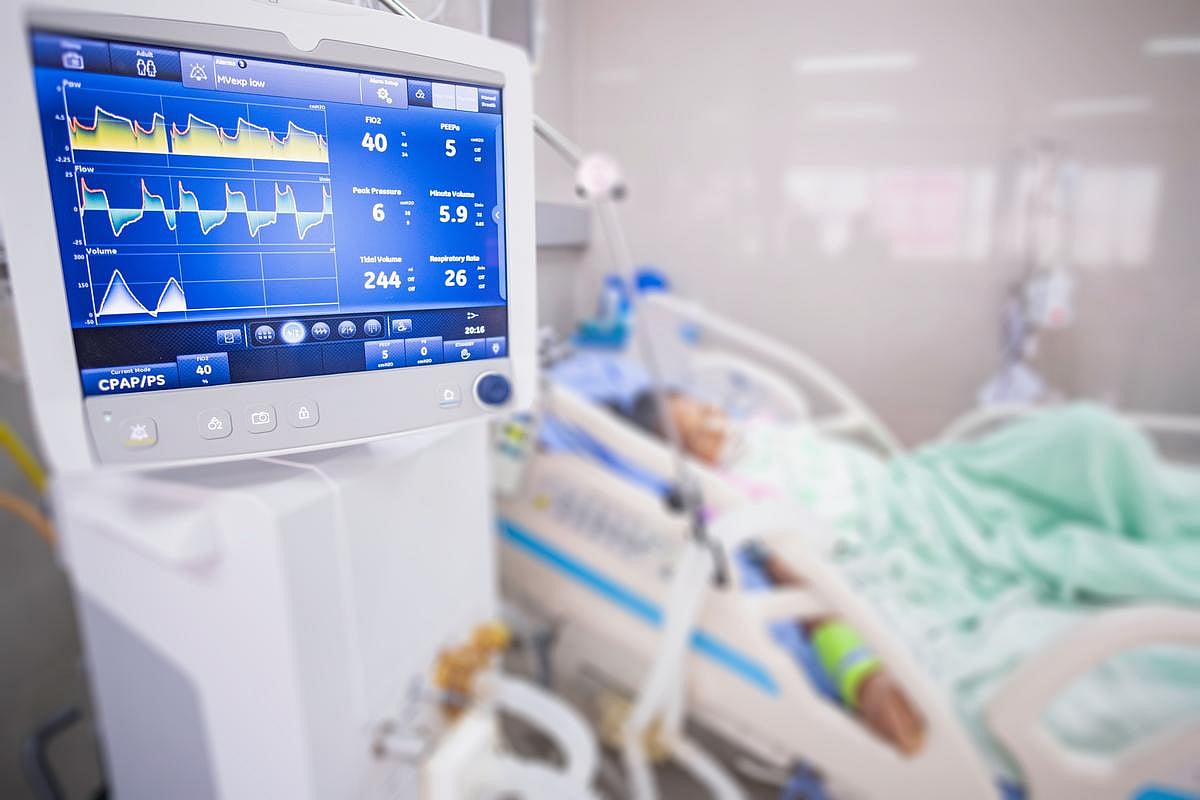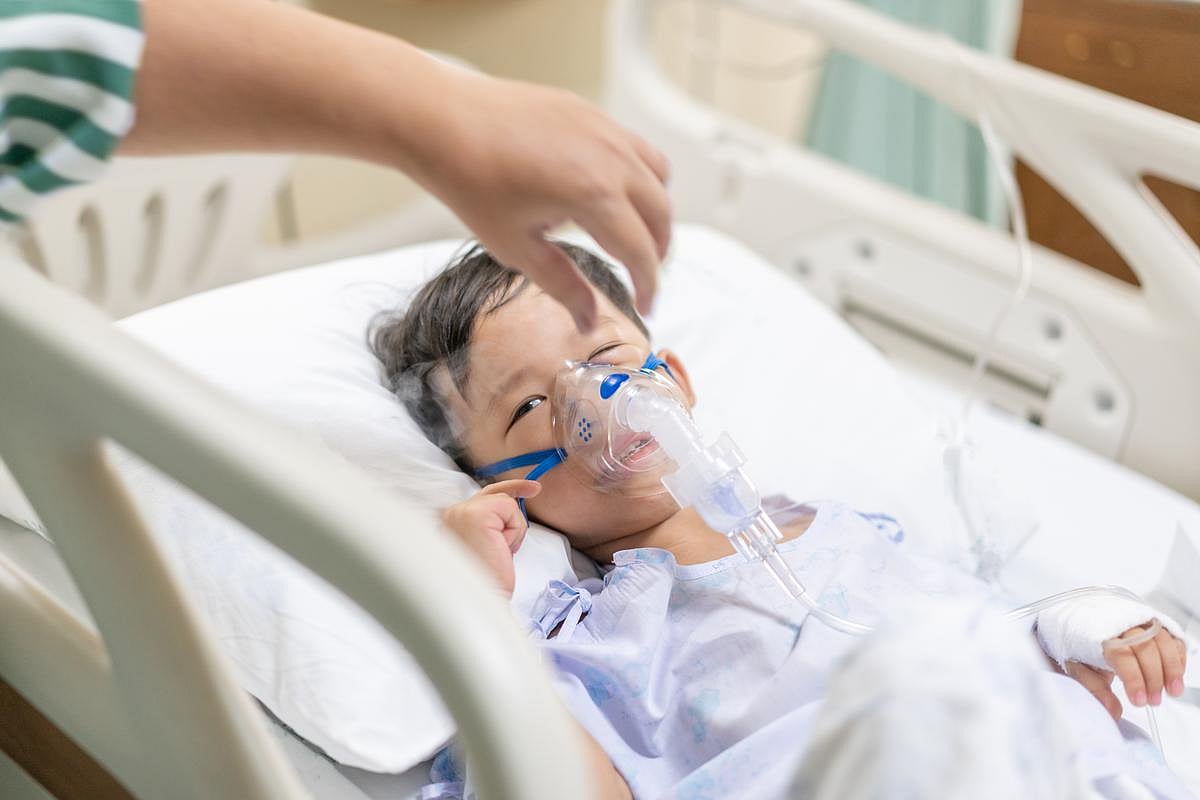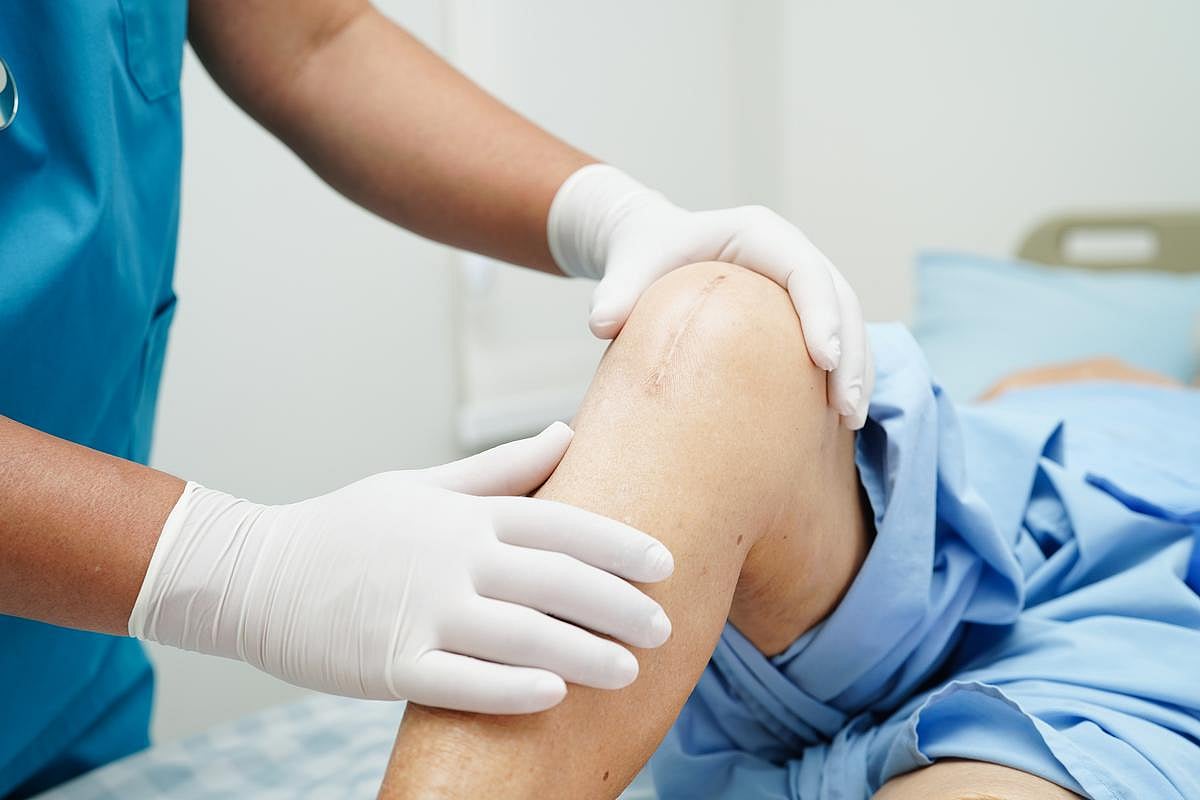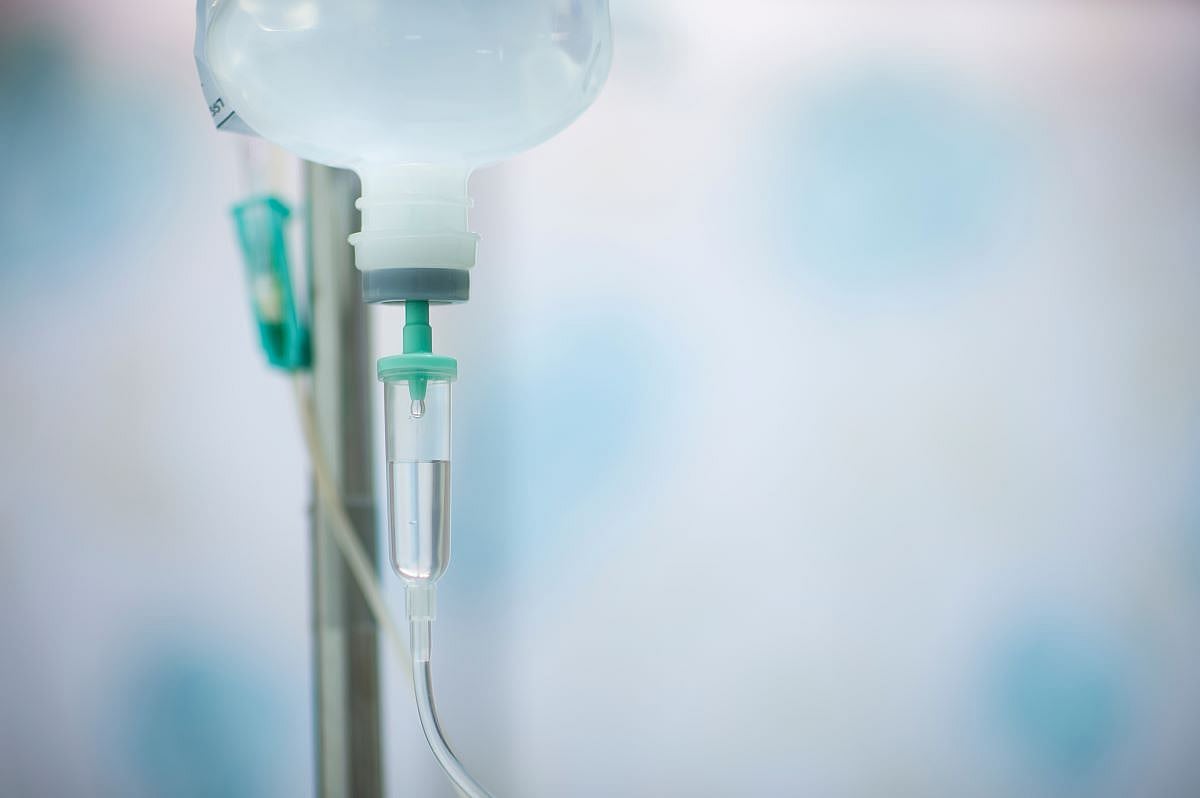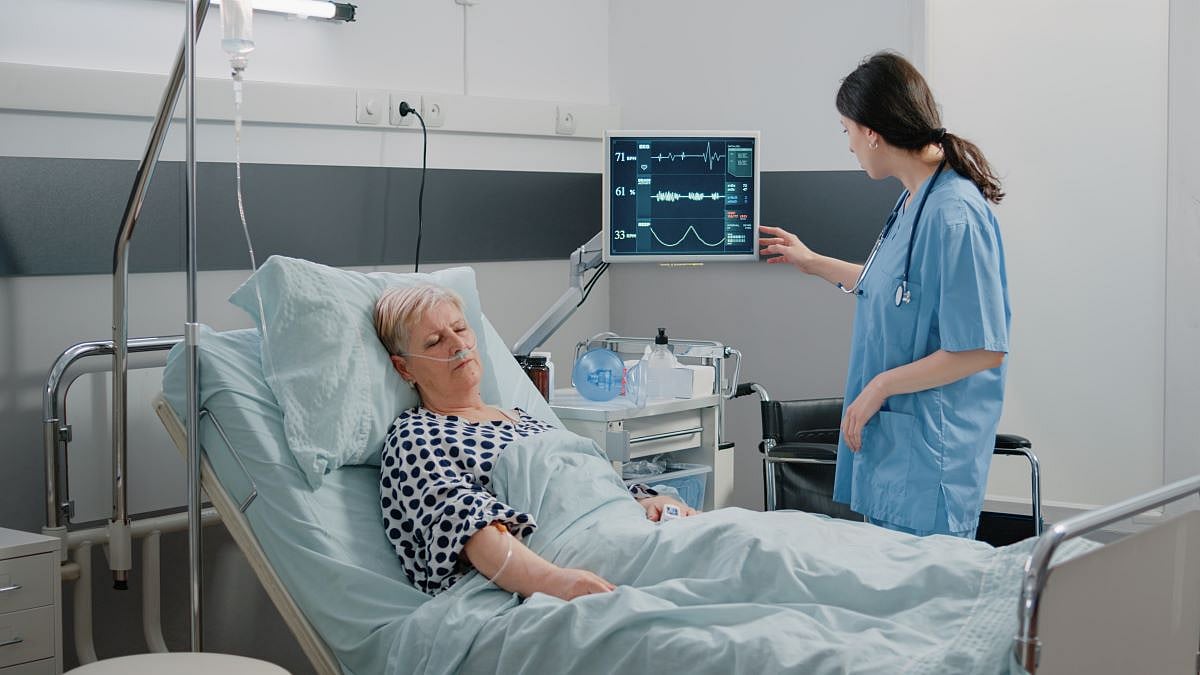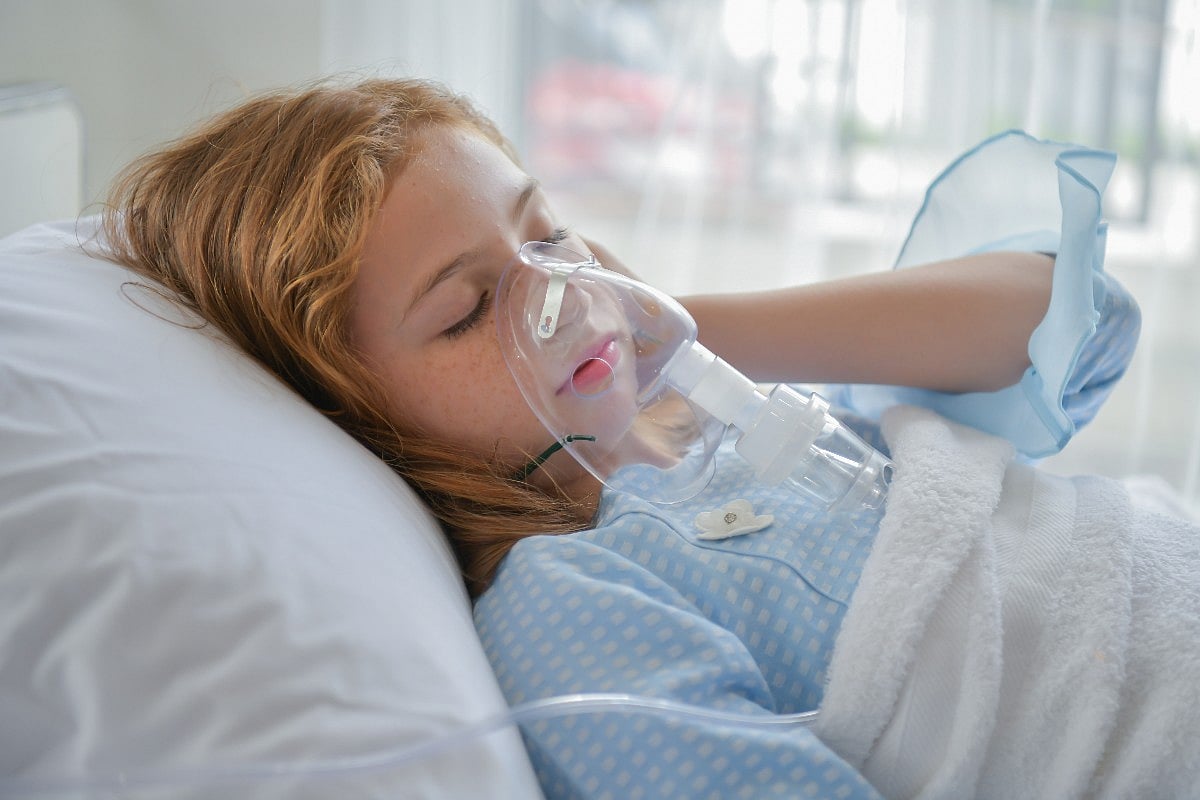Get Healthy!
Results for search "Hospitals".
15 May
The Fight Over Medicaid: What Three Hospital CEOs Fear the Most
HealthDay interviews three hospital CEOs who are worried that massive Medicaid cuts may eliminate life-saving programs for low-income Americans.
Health News Results - 243
A monthlong nurses strike in New York City is coming to an end, but not for everyone.
Nurses at Montefiore and Mount Sinai hospitals voted to approve new three-year contracts, clearing the way for about 10,500 nurses to return to work in the coming days.
But nurses at NewYork-Presby...
- I. Edwards HealthDay Reporter
- |
- February 13, 2026
- |
- Full Page
An outdated Medicare policy is keeping seniors in hospitals longer than necessary, wasting their time, hospital resources and federal health funding, a new study says.
Established in 1965, the “three-day rule” was intended to justify the expense of sending a patient to a skilled nursing facility.
The rule requires patients to spend at least three straight days in a hospi...
- Dennis Thompson HealthDay Reporter
- |
- February 10, 2026
- |
- Full Page
Hospitals are being inappropriately penalized for lifesaving stroke procedures, due to faulty federal methods for analyzing hospital safety, a new study says.
The measure is intended to assess “failure-to-rescue” — a hospital’s fail...
- Dennis Thompson HealthDay Reporter
- |
- January 20, 2026
- |
- Full Page
Gritty medical drama "The Pitt" has made a big difference in the way patients and families understand dicey issues like organ donation or end-of-life decision making, a new report says.
"The Pitt" — which returned to HBO Max for its second season Thursday — is well-known for its commitment to accuracy and authenticity, researchers at the USC Norman Lear Center in Los Angeles s...
- Dennis Thompson HealthDay Reporter
- |
- January 9, 2026
- |
- Full Page
Virtual nurses aren’t an effective way to help hospitals deal with a lack of staffing, a new study says.
Hospitals struggling to attract and retain nurses are trying out virtual nursing programs, in which nurses in remote locations rely on video and messaging technologies to keep tabs on patients, researchers said.
But these virtual nurses are taking little of the burden away ...
- Dennis Thompson HealthDay Reporter
- |
- December 12, 2025
- |
- Full Page
Discharging hospital patients early to recover at home might be key to saving rural health care, a new study says.
Rural patients cost a good deal less to care for during recovery at home than in a hospital, researchers recently reported in JAMA Network Open.
What’s more, those patients...
- Dennis Thompson HealthDay Reporter
- |
- December 8, 2025
- |
- Full Page
Increased use of hallucinogens like psilocybin hasn’t created an increase in ER visits or hospitalizations for bad trips, researchers recently reported in JAMA Network Open.
“In fact, after a small rise through early 2020, admissions declined through 2023, with no correlation to decrimi...
- Dennis Thompson HealthDay Reporter
- |
- November 21, 2025
- |
- Full Page
Adding even a few extra nurses can dramatically reduce burnout and improve morale among hospital medical staff, a new study says.
Increasing nurse staffing by as little as 10% improved attitudes among both physicians and nurses working in hospitals, researchers report...
- Dennis Thompson HealthDay Reporter
- |
- November 20, 2025
- |
- Full Page
More people appear to die in emergency rooms (ER) after hospitals have been bought by private equity firms, a new study says.
About 13% more deaths occur among Medicare patients in the emergency rooms of hospitals after their acquisition by private equity, researchers estimate in the Annals of Internal Medicine...
- Dennis Thompson HealthDay Reporter
- |
- September 24, 2025
- |
- Full Page
Community hospitals don't often transfer severely injured patients to higher-level trauma centers that could provide the care they need, a new study says.
Fewer than half of severely injured people are transferred from a low-level trauma center to larger or more advanced hospitals, researchers reported in the
Artificial intelligence (AI) programs can help doctors and nurses predict hours earlier which ER patients will likely require hospital admission, a new study says.
An AI program trained on nearly 2 million patient visits became slightly more accurate than ER nurses in predicting which patients would need to be admitted, according to findings published Aug. 11 in the journal
An increasing number of Americans are languishing in ERs for hours or even days, waiting for a hospital bed to open for them, a new study says.
More than 25% of ER patients who require admission for hospital treatment wind up “boarded” – biding four or more hours in spare rooms or busy hallways until a bed becomes available, researchers reported recently in the journal <...
- Dennis Thompson HealthDay Reporter
- |
- August 11, 2025
- |
- Full Page
Nearly 9 out of 10 adults who land in an ER haven't been fully vaccinated, a new study says.
People who came to an emergency department for treatment of minor injuries or illnesses were often unaware of the vaccines available to them, researchers reported Aug. 7 in the Morbidity and Mortality Weekly Report, a publi...
- Dennis Thompson HealthDay Reporter
- |
- August 11, 2025
- |
- Full Page
The Trump administration's recent travel and visa restrictions have left some hospitals in the United States without essential staff, according to a report from the Associated Press.
International doctors who were set to start their medical training this week are finding they are stumbling at the last hurdle -- a visa to enter the country. It is currently unclear precisely how ma...
- HealthDay Reporter
- Stephanie Brown
- |
- July 7, 2025
- |
- Full Page
Many kids are spending a lot of unnecessary time under observation in a hospital following a sudden allergic emergency, a new study concludes.
About 17% of kids are admitted for overnight observation following a scary allergic reaction to food, medicine or insect bites, researchers reported.
But...
- HealthDay Reporter
- Dennis Thompson
- |
- June 27, 2025
- |
- Full Page
Miscommunication between hospital staff regularly puts patients at risk, a new study says.
Poor communications between health care workers contributed to 25% of hospital incidents that put patients’ safety at risk, researchers reported April 14 in the Annals of Internal Medicine.
What’s more, ...
- HealthDay Reporter
- Dennis Thompson
- |
- April 15, 2025
- |
- Full Page
America’s emergency rooms are near the breaking point, causing long wait times and boarding of patients awaiting care, a new study says.
Essentially, ERs are being asked to serve as health care hubs that offer services far beyond emergency care, according to a new report from the non-profit research organization RAND.
And they are asked to do this with less money,
Don’t be surprised if you get a bill for that note your doctor sent you through his clinic’s patient portal.
About 1 in 7 patients have been billed for messages sent to them through a patient portal, according to a new study published April 4 in
A notorious hospital-associated infection has been spreading through hospitals much more readily than people suspected, a new study says.
The bacterium Clostridium difficile – commonly called C. diff – spreads within intensive care units more than three times as much as previously thought, researchers reported in
Hospitals could be short-changing patients if they lean too heavily on nurse staffing agencies or overtime hours, a new study says.
Patients are much more likely to develop bedsores at short-staffed hospitals that regularly bring in travel nurses or require nurses to work overtime, researchers repo...
- HealthDay Reporter
- Dennis Thompson
- |
- April 4, 2025
- |
- Full Page
Poor families have continued to avoid going to the emergency room post-pandemic, even as ER numbers bounced back for folks who are better-off, a new study says.
During the pandemic, visits to ERs for emergency care dropped by about 30% as lockdowns and fea...
- HealthDay Reporter
- Dennis Thompson
- |
- March 19, 2025
- |
- Full Page
U.S. hospitals could face a bed shortage as early as 2032, with occupancy remaining elevated even as the country recovers from the COVID pandemic, a new study suggests.
Average hospital occupancy following the pandemic has been about 75%, researchers found, dividing the average daily number of patien...
- HealthDay Reporter
- Dennis Thompson
- |
- February 20, 2025
- |
- Full Page
As closures of rural hospitals across the United States continue, more Americans are facing hour-plus drives to reach surgical centers, two new reports find.
By 2020, data show, 99 million Americans already had trouble finding "timely, high-quality and affordable surgical care," according to a news release from the University of Michigan.
The situation is most dire for people ...
- HealthDay Reporter
- Ernie Mundell
- |
- February 12, 2025
- |
- Full Page
Americans are falling farther behind the rest of the developed world when it comes to health and life expectancy, a new study shows.
Life expectancy in the United States is expected to increase to 79.9 years in 2035 and 80.4 years by 2050, up from 78.3 years in 2022, researchers reported.
T...
- HealthDay Reporter
- Dennis Thompson
- |
- December 6, 2024
- |
- Full Page
Hospitals across America are shuttering their obstetric units, and the issue is most acute for women served by rural hospitals, a new study finds.
By 2022, a majority (52%) of rural U.S. hospitals no longer had any maternity ward, compared to 36% of urban hospitals, according to a study from the University of Minnesota.
Study lead author
Most children and teenagers can shake long COVID within a couple of a years, a new, reassuring study finds.
About 70% of children and teens diagnosed with long COVID recover from the disorder within 24 months of their initial infection, researchers reported Dec. 4 in the journal Nature Communications Medicine.
&ldq...
- HealthDay Reporter
- Dennis Thompson
- |
- December 5, 2024
- |
- Full Page
AI can’t yet help doctors improve their ability to diagnose complex conditions, a sobering new study has found.
Doctors had about the same diagnostic accuracy whether or not they were using ChatGPT Plus, according to results published recently in the journal JAMA Network Open.
However, ...
- HealthDay Reporter
- Dennis Thompson
- |
- November 15, 2024
- |
- Full Page
More than a third of surgical patients develop complications as a result of their procedure, a new study shows.
About 38% of adult patients suffer an adverse event during or following their surgery, researchers reported Nov. 13 in the BMJ.
Nearly half of these complications result in serious, life-threatening or ...
- HealthDay Reporter
- Dennis Thompson
- |
- November 14, 2024
- |
- Full Page
Walking pneumonia cases are surging among young children in the United States, federal health officials warn.
"Bacterial infections caused by Mycoplasma pneumoniae increased in the United States since late spring and have remained high," a sta...
- HealthDay Reporter
- Robin Foster
- |
- October 21, 2024
- |
- Full Page
The repeated fasting required for multiple surgeries in a row can slow a patient’s recovery and increase the risk of death, a new study warns.
Surgical patients are asked to not eat after midnight prior to their procedure, to reduce the risk that they&r...
- HealthDay Reporter
- Dennis Thompson
- |
- October 21, 2024
- |
- Full Page
A handheld pinprick blood test could someday deliver results in as little as an hour, a new study shows.
The portable device, which fits in the palm of a hand, uses sound waves to separate a tiny whole blood sample down into microscopic biomarkers, researchers reported Oct. 16 in the journal Science Advances.
...
- HealthDay Reporter
- Dennis Thompson
- |
- October 21, 2024
- |
- Full Page
Following hurricane damage that shuttered a North Carolina plant that makes 60% of the country's IV fluids, U.S. health officials have invoked the Defense Production Act to hasten rebuilding of the factory.
A nationwide shortage of IV fluids has only worsened since Hurricane Helene wrecked the plant run by Baxter International Inc. late last month, and hospitals say they are still postpon...
- HealthDay Reporter
- Robin Foster
- |
- October 16, 2024
- |
- Full Page
Half of people who develop blood poisoning, otherwise known as sepsis, are dead within a couple of years, a new study finds.
A little more than 50% of patients admitted to an ER with
Facing a nationwide shortage of vital IV fluids after Hurricane Helene knocked out a North Carolina production plant, officials heaved a sigh of relief at the news that a second plant in Daytona Beach, Fla., was spared by Hurricane Milton and remains functional.
According to the New York Times, a spokeswoman for B. Braun, the company that runs the Daytona Beach plant, said the fa...
- HealthDay Reporter
- Ernie Mundell
- |
- October 11, 2024
- |
- Full Page
After Hurricane Helene knocked out a North Carolina production plant for a major supplier of IV fluids for U.S. hospitals, officials said the federal government is reaching out internationally to help restore supply.
The situation could get even worse: As Hurricane Milton barreled down on Florida, a second IV fluid maker's facility in Daytona Beach was in its crosshairs, the New York ...
- HealthDay Reporter
- Ernie Mundell
- |
- October 10, 2024
- |
- Full Page
As Hurricane Milton barreled toward the west coast of Florida, hospitals in its path were making ready.
Milton is projected to make landfall a bit south of the Tampa area late Wednesday night. Long-term care facilities in counties where mandatory evacuations have been issued have taken their patients elsewhere, while some hospitals prepare to stay open through the storm, the Associat...
- HealthDay Reporter
- Robin Foster
- |
- October 9, 2024
- |
- Full Page
AI isn’t ready to run a hospital’s emergency room just yet, a new study concludes.
ChatGPT likely would ask for unnecessary x-rays and antibiotics for some patients, and admit others who don’t really need hospital treatment, researchers reported Oct. 8 ...
- HealthDay Reporter
- Dennis Thompson
- |
- October 8, 2024
- |
- Full Page
Teens from minority groups seeking treatment at pediatric trauma centers are more likely than their white counterparts to be tested for drugs and alcohol.
That's the takeaway from a new study led by researchers at UCLA and Children's Hospital Los Angeles.
"While screening can positively affect patients if it is followed by counseling and treatment, it can also lead to negative...
- HealthDay Reporter
- Carole Tanzer Miller
- |
- October 4, 2024
- |
- Full Page
One in 14 hospital patients may be the victim of damaging diagnostic mistakes, new research suggests.
The finding is from a study of 675 patients admitted to one large hospital in Boston at various periods between July 2019 and September 2021. The patients were randomly selected from more than 9,000 hospitalized during that time.
"The majority of [the diagnostic errors] were prevent...
- HealthDay Reporter
- Carole Tanzer Miller
- |
- October 2, 2024
- |
- Full Page
Therapy dogs can help boost the spirits of health care workers in the same way they brighten the moods of hospital patients, a new study shows.
The furry, four-legged friends reduced emotional exhaustion and job stress among a small group of workers at two surgical and two i...
- HealthDay Reporter
- Dennis Thompson
- |
- September 18, 2024
- |
- Full Page
Rural hospitals – and their patients -- are particularly vulnerable to the aftershocks caused by ransomware attacks, a new study reports.
“Ransomware attacks are bad news for hospitals and patients no matter where they happen, but they’re especially harmful to rural hospitals and patients,” lead re...
- HealthDay Reporter
- Dennis Thompson
- |
- August 30, 2024
- |
- Full Page
Patients discharged from a hospital stay are bringing antibiotic-resistant “superbugs†home with them, a new study warns.
Family members of recently discharged patients are 71 times more likely to get a MRSA infection after their return, compared with people ...
- HealthDay Reporter
- Dennis Thompson
- |
- August 9, 2024
- |
- Full Page
Hospitals could be frequently misdiagnosing pneumonia, causing patients to receive the wrong treatments and potentially become deathly ill, a new study finds.
More than half the time, a pneumonia diagnosis will change following a patient’s admission to the hosp...
- HealthDay Reporter
- Dennis Thompson
- |
- August 6, 2024
- |
- Full Page
The number of people who trust doctors dropped steeply during the COVID-19 pandemic, a new study says.
Worse, those who lost their faith in medicine are less likely to get vaccinated against COVID or the flu, researchers found.
“Trust in physicians and hospitals can be critical for public...
- HealthDay Reporter
- Dennis Thompson
- |
- July 31, 2024
- |
- Full Page
Hospitals and clinical laboratories across the United States are facing a critical shortage of bottles used to culture blood samples, federal health officials report.
Without the ability to culture blood, patients might receive the wrong antibiotics to treat conditions like endocarditis,
Youngsters so sick they’ve needed treatment in an ICU appear to bear the scars of that experience years later, a new study finds.
Children and teenagers treated in an intensive care unit have a significantly higher risk of developing a mental illness as they grow up, researchers reported July 20 in the
After an anesthesiologist may have exposed thousands of people treated at several hospitals in Oregon to hepatitis and HIV, those patients are being advised to get tested for the diseases.
Two health care providers in Portland -- Providence and Legacy Health -- have been told to offer the tests as a safety precaution.
"We recently learned that Providence's comprehensive infection co...
- HealthDay Reporter
- Robin Foster
- |
- July 12, 2024
- |
- Full Page
Seventeen women in nine states have fallen ill after getting fake Botox shots, with 13 of them landing in the hospital and one requiring a ventilator, a new report warns.
In the report, published Thursday by the U.S. Centers for Disease Control and Prevention, researchers provided alarming details of patien...
- HealthDay Reporter
- Robin Foster
- |
- July 12, 2024
- |
- Full Page
Older women are more likely than older men to die following heart bypass surgery, possibly due to the quality of the hospitals where they undergo the procedure, a new study says.
Women older than 65 are 26% more likely than men to undergo the surgery at a low-quality hospital, defined as a hospital with a high rate of patient deaths in the month following their treatment, researchers...
- HealthDay Reporter
- Dennis Thompson
- |
- July 12, 2024
- |
- Full Page


.jpg?w=1920&h=1080&mode=crop&crop=focalpoint)
